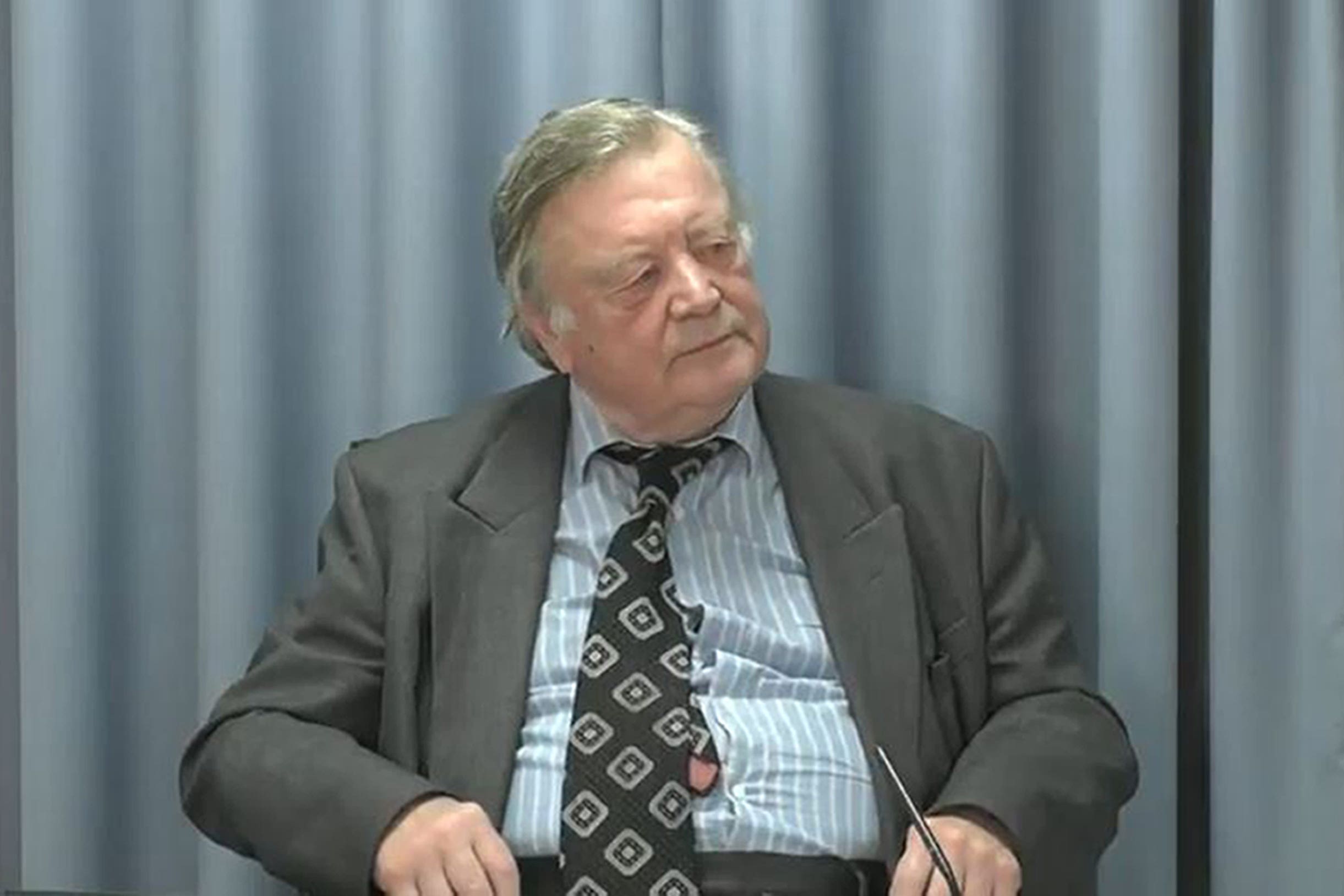Ken Clarke has ‘questions to address’ over infected blood scandal, says minister
Campaigners have demanded an apology from the Tory former minister and there are calls for him to lose his peerage.

There are questions over the contaminated blood scandal that former health secretary Lord Ken Clarke needs to address, a Cabinet minister has said.
It comes after the final report of the Infected Blood Inquiry accused Lord Clarke of “misleading” the public and attacked his “combative style” when he gave oral evidence to the probe.
Campaigners have demanded an apology from the Tory former minister amid calls for him to lose his peerage.
Asked if he feels Lord Clarke has questions to answer, Work and Pensions Secretary Mel Stride told Sky News: “There are clearly questions that are being posed, very serious questions, and to that degree indeed there are questions that need to be addressed.”
He also said stripping Lord Clarke of his peerage is a matter for the forfeiture committee.
Mr Stride told the broadcaster: “I think some have been calling for his knighthood to be removed. That’s a matter for the forfeiture committee, not for Government or me really, I think, to opine on that level.
“Those are matters that traditionally are dealt with in a different way.
“I recognise that there are many people in many groups of people that have come out of this report very badly. There are recommendations over and above compensation that the report makes and, of course, the Government will look very closely at those recommendations and have more to say in due course.”
He told LBC: “Sir Brian (Langstaff, inquiry chairman) has come forward with some very strong observations of Ken, in the context of the scandal. Clearly there are questions that I’ve no doubt Ken will be addressing in time.”
Clive Smith, chairman of The Haemophilia Society, who is a qualified barrister, said on Monday: “I think he owes the community an apology, not just for his time as health secretary but for the manner and the lack of humanity and compassion that he showed when he gave evidence to this inquiry.”
He told LBC Radio on Tuesday that the former minister gave evidence which was “breathtaking in the extreme”.
The way in which he gave his evidence (to the inquiry) was appalling
Asked if Lord Clarke should stay in position in the House of Lords, he said: “We wrote to the Upper House when it was suggested that he was going to get a peerage, saying ‘Please don’t do that yet, wait until the Infected Blood Inquiry has reported’.
“Now we have the conclusions of the Infected Blood Inquiry report, I think our letter was well-timed and entirely accurate.
“The way in which he gave his evidence (to the inquiry) was appalling.”
In 1983, an Aids leaflet was published alongside a press release in which Lord Clarke said: “It has been suggested that Aids may be transmitted in blood or blood products. There is no conclusive proof that this is so.”
That line was repeated over several years.
Inquiry chairman Sir Brian Langstaff said in his report on Monday: “This line to take, whilst technically correct, was indefensible. It did not spell out the real risk. It gave false reassurance.
“It lacked candour and, by not telling the whole truth, was misleading.
“It was not an accurate reflection of the (Department of Health’s) actual understanding, which was that it was likely that Aids was transmitted through blood and blood products.
“No minister challenged the ‘no conclusive proof’ line. They should have done.”
In the 1980s, the government decided against any form of compensation to people infected with HIV, with then-health minister Lord Clarke saying there would be no state scheme to compensate those suffering “the unavoidable adverse effects” of medical procedures.
It will be up to individuals named in the inquiry to respond on their own behalf, Downing Street said, when asked about criticism faced by Lord Clarke.
The Prime Minister’s official spokesman said: “When it comes to individuals and groups who are named in the report, the report is obviously incredibly wide-ranging and names a number of groups and individuals.
“It will be up to individuals to respond rather than me.
“We will obviously, from our part, be taking forward the recommendations both on compensation and looking at the wider recommendations meticulously and responding as soon as possible.”
Lord Clarke has been contacted for comment.
Bookmark popover
Removed from bookmarks